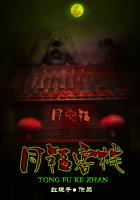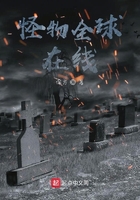"I am sorry, uncle, but I withdraw nothing. Even if Alan here were dead, I would not marry that man, and perhaps you will make him understand this," she added with emphasis. "Indeed I had sooner die myself. You told us also that if I marry against your will, you can take away all the property that my father left to me. Uncle, I shall not give you that satisfaction. I shall wait until I am twenty-five and do what I please with myself and my fortune. Lastly, you said that you forbade us to see each other or to correspond. I answer that I shall both write to and see Alan as often as I like. If you attempt to prevent me from doing so, I shall go to the Court of Chancery, lay all the facts before it, as I have been advised that I can do--not by Alan --please remember, /all/ the facts, and ask for its protection and for a separate maintenance out of my estate until I am twenty-five. I am sure that the Court would grant me this and would declare that considering his distinguished family and record Alan is a perfectly proper person to be my affianced husband. I think that is all I have to say."
"All you have to say!" gasped Mr. Haswell, "all you have to say, you impertinent and ungrateful minx!" Then he fell into a furious fit of rage and in language that need not be repeated, poured a stream of threats and abuse upon Alan and herself. Barbara waited until he ceased from exhaustion.
"Uncle," she said, "you should remember that your heart is weak and you must not overexcite yourself, also when you are calmer, that if you speak to me like that again, I shall go to the Court at once, for I will not be sworn at by you or by any other man. I apologize to you, Alan; I am afraid I have brought you into strange company. Come, my dear, we will go and order your dogcart," and putting her arm affectionately through his, she went with him from the room.
"I wonder who put her up to all this?" gasped Haswell, as the door closed behind them. "Some infernal lawyer, I'll be bound. Well, she has got the whip hand of me, and I can't face an investigation in Chancery, especially as the only thing against Vernon is that the value of his land has fallen. But I swear that she shall never marry him while I live," he ended in a kind of shout and the domed and painted ceiling echoed back his words--"/while I live/" after which the room was silent, save for the heavy thumping of his heart.
When Alan reached home that night after his ten-mile drive he sent Jeekie to tell the housekeeper to find him some food. In his mysterious African fashion the negro had already collected much intelligence as to the events of the day, mostly in the servants' hall, and more particularly from the two golf-caddies, sons of one of the gardeners, who it seemed instead of retiring with the clubs, had taken shelter in some tall whins and thence followed the interview between Barbara and Sir Robert with the intensest interest. Reflecting that this was not the time to satisfy his burning curiosity, Jeekie went and in due course returned with some cold mutton and a bottle of claret. Then came his chance, for Alan could scarcely touch the mutton and demanded toast and butter.
"Very inferior chop"--that was his West African word for food--"for a gentleman, Major," he said, shaking his white head sympathetically and pointing to the mutton,--"specially when he has unexpectedly departed from magnificent eating of The Court. Why did you not wait till after dinner, Major, before retiring?"
Alan laughed at the man's inflated English, and answered in a more nervous and colloquial style:
"Because I was kicked out, Jeekie."
"Ah! I gathered that kicking was in the wind, Major. Sir Robert Aylward, Bart., he also was kicked out, but by smaller toe."
Again Alan laughed and, as it was a relief to talk even to Jeekie, asked him:
"How do you know that?"
"I gathered it out of atmosphere, Major; from Sir Robert's gentleman, from two youths who watch Sir Robert and Miss Barbara talking upon golf green No. 9, from the machine driver of Sir Robert whose eyes he damn in public, and last but not least from his own noble countenance."
"I see that you are observant, Jeekie."
"Observation, Major, it is art of life. I see Miss Barbara's eyes red like morning sky and I deduct. I see you shot out and gloomy like evening cloud, and I deduct. I listen at door of Mr. Haswell's room, I hear him curse and swear like holy saint in Book, and you and Miss Barbara answer him not like saint, though what you speak I cannot hear, and I deduct. Jeekie deduct this--that you make love to Miss Barbara in proper gentlemanlike, 'nogamous, Christian fashion such as your late Reverend Uncle approve, and Miss Barbara, she make love to you with ten per cent. compound interest, but old gent with whistle, he /not/ approve; he say, 'Where corresponding cash!' He say 'Noble Sir Robert have much cash and interested in identical business. I prefer Sir Robert. Get out, you Cashless.' Often I see this same thing when boy in West Africa, very common wherever sun shine. I note all these matters and I deduct--that Jeekie's way and Jeekie seldom wrong."
Alan laughed for the third time, until the tears ran down his face indeed.
"Jeekie," he said, "you are a great rascal----"
"Yes, yes," interrupted Jeekie, "great rascal. Best thing to be in this world, Major. Honourable Sir Robert, Bart., M.P., and Mr.
Champers-Haswell, D.L., J.P., they find that out long ago and sit on top of tree of opulent renown. Jeekie great rascal and therefore have Savings Bank account--go on, Major."
"Well, Jeekie, because if you are a rascal you are kind-hearted and because I believe that you care for me----"















